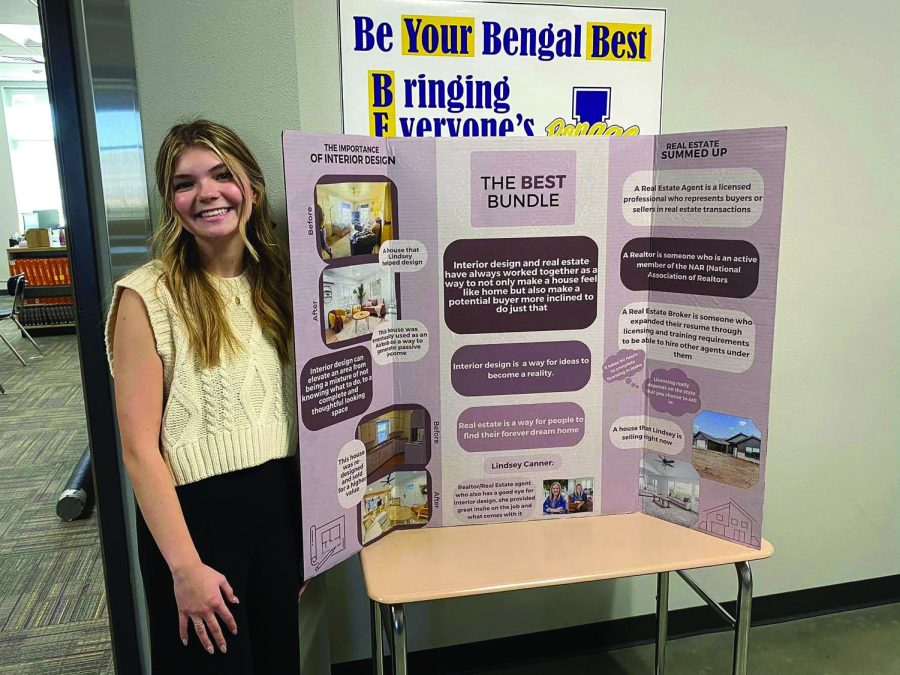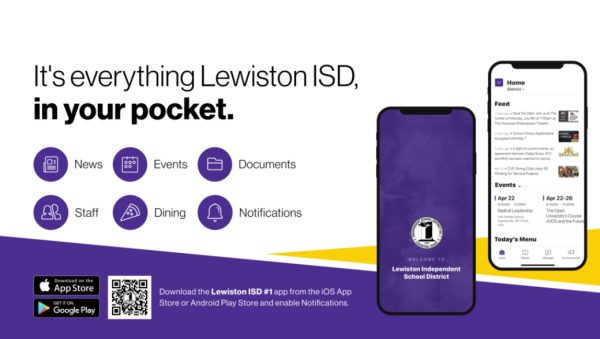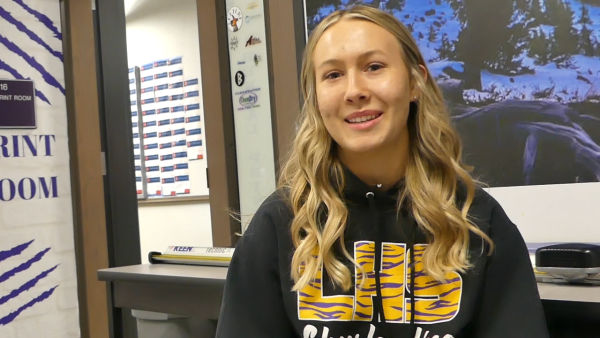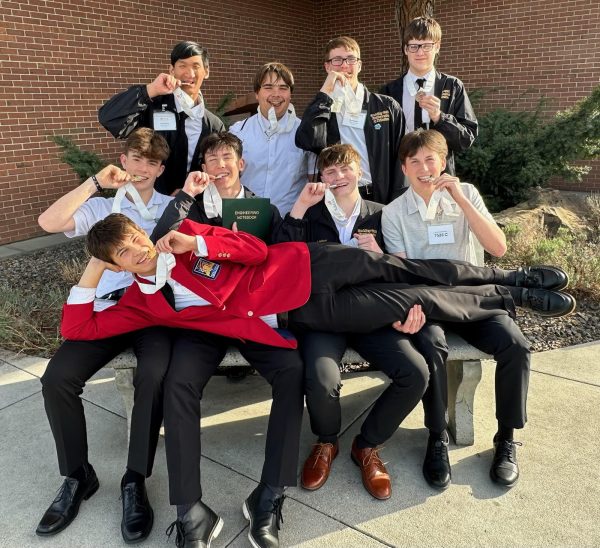Senior Projects Exhibit Student Passions
The senior project, a project specific to high school seniors as a requirement for graduation, has been mandatory in the state of Idaho for approximately 12 years. Within those 12 years, the project has evolved and changed abundantly.
Specific to the presentation, judges –- often parents of sophomore and junior students, along with local volunteers -– were formerly brought in from the community. However, it became more difficult to get the necessary amount of judges due to the lack of volunteers available, resulting in this year’s school staff evaluating the presentations. In the past, the evaluation process caused a school schedule change. Seniors presented in the old Lewiston High School classrooms each spring beginning at 1:00 p.m. Students previously had to give a presentation using a slideshow (8-10 minutes long with a visual aid), create a binder showcasing their process, and complete community service hours outside of school.
This year, students were to present a project board that focused on their positive and negative takeaways from the project, as well as their overall growth during the process. Each student’s presentation board was evaluated by two LHS staff members.
“Doing the project presentation in this format created a more interactive experience and garnered a lot of positive feedback from both students and faculty,” said English teacher, Hilary Gruehl-Laughrey.
A paper is also necessary for the full completion of the senior project. Previously, the page length had to be six pages but was recently decreased to five. This year, however, the paper is graded according to word count, rather than page length. It is also required that it be written in MLA format and students now must acquire information from an expert to be used in both their paper and presentation.
A former requirement that was recently discarded was field experience, which was implemented by the government teachers. Though it was recently replaced by an interview with an expert, students still had to find a non-relative mentor to verify their hours and learning.
The purpose of the senior project, according to LHS faculty, is for students to display all the skills they have built over the course of their high school careers. It also allows students to research the careers they are most interested in. This helps students decide whether or not they want to pursue said career and provides a way to share a cause they are passionate about.
A multitude of skills are vital in order to complete the senior project. Students need to communicate effectively using writing, cite sources correctly, conduct and organize research, and create an eloquent paper and presentation using the information gathered from various sources. These abilities are all valuable for future college and career endeavors.
“I think our seniors get out of this what they put into it,” said Kevin Driskill, the LHS principal. “It gives our students one more opportunity to present research in front of judges. That is always valuable.”
With this year’s changes, LHS teachers have shared their thoughts on the project and how to improve it.
“I don’t have all the details yet, but rest assured we are always looking to improve our practice to better benefit our students,” said Gruehl-Laughrey.
One example provided by the school librarian, Shannon Van Buren, was to have the written requirement be one of the students choosing from a variety of classes offered at LHS. This way, the students would be able to choose what they want to use for the senior project evaluation.
“The idea is that opening up the students to select their best work, and what probably interests them the most, will give them a sense of ownership and pride for all aspects of the project,” Van Buren said.
If he could change anything about the senior project, Driskill said, “I wish we could take the stress and anxiety that some of the students feel away.”






Ayesha • Dec 21, 2024 at 11:37 PM
This is awesome. But can I know of what material you made it? I am so impressed tat I also want to make smth like this for my final year university project.